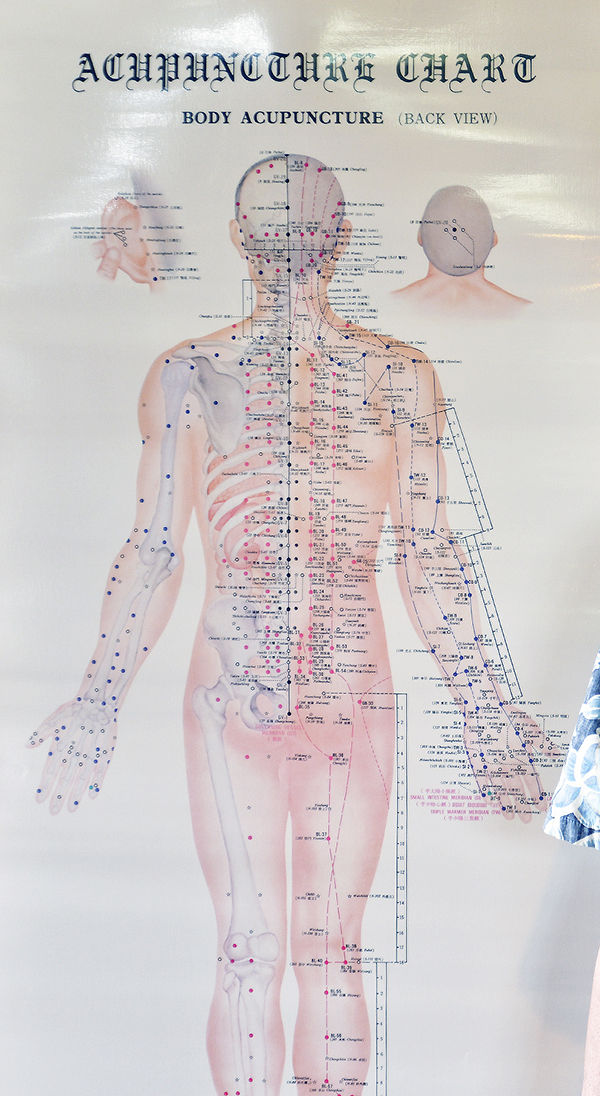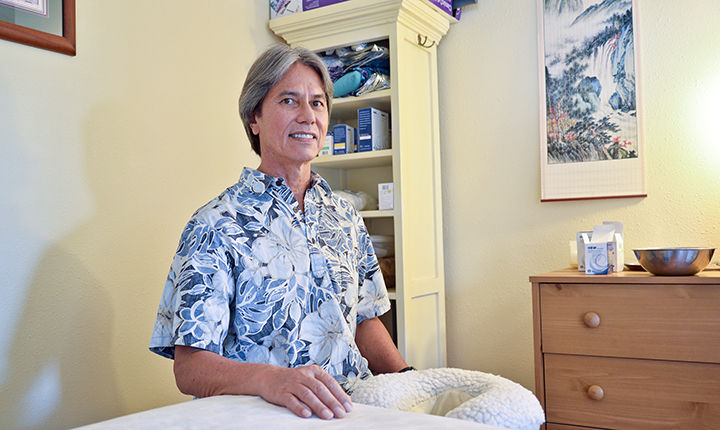KAPAA — Richard Scheffer, a mechanical engineer, a boat captain, scuba diver, surfer and water ski instructor, focuses most of his time helping people stay healthy. As Dr. Richard Scheffer, he practices acupuncture and traditional Chinese medicine at the Natural
KAPAA — Richard Scheffer, a mechanical engineer, a boat captain, scuba diver, surfer and water ski instructor, focuses most of his time helping people stay healthy.
As Dr. Richard Scheffer, he practices acupuncture and traditional Chinese medicine at the Natural Medicine & Acupuncture Center of Kauai.
Scheffer was born in Stockton, California, and moved to San Francisco at age 4. He moved to Oahu in 1979 and worked as a mechanical engineer at Hickam Air Force Base for 30 years before completing his master’s degree in traditional Chinese medicine at the Oriental Medical Institute of Hawaii. Later, he earned a doctorate of philosophy in acupuncture from the College of Oriental Medicine.
Scheffer specializes in sports therapy, anti-aging and treats all conditions and diseases using acupuncture, natural medicines, herbs, homeopathies, nutritional advice, Amethyst BioMat and related modalities. He has lived on Kauai since 2000.
TGI: How long have you been working in TCM?
Richard Scheffer: I have been practicing in Hawaii for almost 22 years. I practiced for seven years in Oahu, and 15 years on Kauai. I taught various classes at the Oriental Medical Institute of Hawaii for four years after I graduated.
TGI: What was it that made you want to study TCM?
RS: I started surfing at 14 years old. I got into eating healthy at 17 years old. Then I realized that natural medicine and acupuncture could keep me from unneeded surgeries and pharmaceutical drugs and all their side effects. I have been surfing now for 51 years.
TGI: What did you do at your engineering job with the U.S. Air Force?
RS: I was a mechanical engineer. When the airplanes would break down they brought me the broken parts if there were not any in the inventory. Many of the parts did not have any blueprints available and I had to figure out from scratch how to make the part, what it was made of, what it did, and then do a functionality test.
TGI: Did your careers overlap?
RS: Yes. I worked for the Air Force from 6 a.m. to 2 p.m. daily, and then I went home and saw (TCM) clients until 10 p.m. I always worked three jobs before moving to Kauai. I am just a workaholic and when I was not surfing or waterskiing myself, I was teaching it. I also had a captain’s license and drove fishing boats and dinner cruises. I always kept busy and right now I am scheduling TCM appointments for 10 to 13 hours five or six days per week.
TGI: Was all your study in Hawaii or did you study in other states or countries?
RS: My TCM studies were all in Hawaii. About 20 percent of the students in my classes were from China. I asked them why they didn’t study in China. They told me they got a better education here.
TGI: Is it difficult to get licensed in Hawaii?
RS: The state exam in Hawaii I believe is the most difficult in the United States. I have met many other acupuncturists who are certified in other states and they tell me they have had to take the Hawaii exam several times before they could get their license here. Once the test is passed then the acupuncturist may use the credentials LAc (licensed acupuncturist) on their official title and start treating patients.
TGI: In your experience, when does TCM work well as the sole treatment and when does it work best in combination with other modalities or Western medicine?
RS: Depending on the condition, I would do TCM or work in combination with Western medicine. However, I do encourage people whenever possible to get away from surgeries and pharmaceuticals because there are so many deaths each year. Pharmaceuticals were made to mimic natural remedies and since they wanted to make them cheaper, they make them from synthetics that are toxic to the body and have side effects. Herbal medicines are mostly made from foods.
TGI: What are common fears or misconceptions about acupuncture?
RS: Does it hurt? If you have a tattoo then you probably won’t even feel my needles. In some treatments you can feel more than others, it really depends on the condition.
TGI: I have heard about the success of acupuncture in pain management. Can you tell us more about that and also how it helps with healing?
RS: I’ve had a lot of luck with pain management. Insertion of the needle creates endorphins, which are the body’s natural pain reliever. It also improves blood and Qi flow (the body’s natural energy) which gets more healing nutrients to the affected area.
TGI: Some herbalists prefer natural herbs, while others prefer the powders. Which do you prefer and why?
RS: I prefer the whole natural herbs. However, in Hawaii’s climate and humidity it is hard to keep them fresh. Most of the herbs and natural medicines I use are ancient formulas in pill or capsule form, mixed in the proper proportions. With powders, it is easy to get the proportions incorrect.
TGI: What is the red sash of Sun Simiao? What does this mean?
RS: Sun Simiao was a TCM doctor of the Sui and Tang dynasty in the 7th century. His methods were successful and he began the work of recording treatments regimens and herbal recipes. He also wrote the treatise “On the Absolute Sincerity of Great Physicians,” which is considered the Chinese Hippocratic Oath for its themes of providing the best care to all patients no matter their background, wealth, or standing in society. When a student of TCM graduates, they often receive a red silk sash that is inscribed with this oath.



